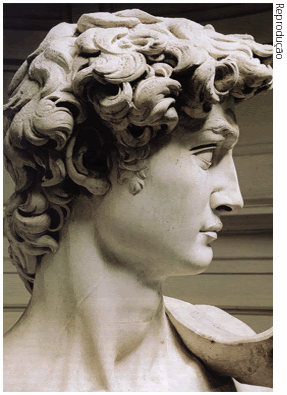
Je doute que toute la philosophie du monde parvienne un jour à abolir l'esclavage; on en changera tout au plus le nom.
"Mémoires d'Hadrien"/"Memoirs of Hadrian"
I doubt that all the philosophy of the world manages one day to abolish slavery; at most its name will be changed.
Marguerite Yourcenar was the pseudonym of French novelist Marguerite Cleenewerck de Crayencour (June 8.th 1903 - December 17.th 1987).
Yourcenar was born in Brussels, Belgium, and educated privately to a prodigious standard at her father's estate in northern France. Her mother died ten days after Marguerite was born due to complications.
Yourcenar read Racine and Aristophanes by the age of eight and her father taught her Latin at ten, and Greek at twelve.
Her first novel "Alexis, ou le traité du vain combat" was published in 1929. Her intimate companion at the time, a translator named Grace Frick, invited her to America, where she lectured in comparative literature in New York City. She and Frick became intimate friends/lovers in 1937, and would remain so until Frick's death in 1979.
In 1951 she published, in France, the French-language novel "Mémoires d'Hadrien" (translated as "Memoirs of Hadrian"), which she had been writing with pauses for a decade. The novel was an immediate success and met with great critical acclaim. In this novel Yourcenar recreated the life and death of one of the great rulers of the ancient world, the Roman Emperor Hadrian, who writes a long letter to Marcus Aurelius, his successor and adoptive son.
In this novel Yourcenar recreated the life and death of one of the great rulers of the ancient world, the Roman Emperor Hadrian, who writes a long letter to Marcus Aurelius, his successor and adoptive son.
The Emperor meditates on his past, describing his triumphs, his love for Antinous, and his philosophy.
This novel has become a modern classic, a standard against which fictional recreations of Antiquity are measured.
Yourcenar was elected as the first female member of the Académie Française, in 1980. One of the respected writers in French language, she published many novels, essays, poetry, and three volumes of memoirs.
She lived much of her life at Petite Plaisance in Northeast Harbor on Mount Desert Island, Maine, USA.
Petite Plaisance is now a museum dedicated to Yourcenar's memory.
There's just no way for me to tell you how immensely beautiful the words she has put in Hadrian's mouth are… You'll have to judge for yourselves, believe me!
RIC
quarta-feira, 24 de janeiro de 2007
Marguerite Yourcenar in Memoriam
Editado por RIC às 21:33
Separadores:
Literaturas
![]()
Subscrever:
Enviar feedback (Atom)




















26 comentários:
Bonita homenagem. E claro, só podia vir de ti! :)
Sabes uma coisa? O meu Imperador favorito é bem capaz de ser o Trajano...
Ai se lhe soubesse as memórias!...
Pode muito bem mudar o nome, mas nunca deixara de haver a condição subjacente.
Que melhor do que julgar com os nossos próprios "olhos".
Ps: Eu cá vou continuando a aprender...
Olá Catatau! Pois é, depois dos últimos éditos este impôs-se por si.
Lembro-me bem dela em Lisboa, no início dos anos 80, numa sessão «histórica» na Gulbenkian...
Referes no comentário Trajano, o guerreiro que venceu a Dácia; mas Adriano é outro... Ter-te-ei compreendido mal?
Obrigado, meu caro!
Um abraço! :-)
Olá Lampejo! Referes-te decerto ao facto de «Yourcenar» ser um anagrama de »Crayencour»...
Apesar de tudo, ela viu o mundo de olhos bem abertos...
Se tens prazer na «aprendizagem», quem sou eu para te contrariar?...
Um abraço amigo! :-)
Quem ira escrever as Nemórias de TongZhi?
:)
Bela escolha, belo post. Já estava à espera dele.
Abraço :)
Olá Tongzhi! Bem, as tuas, não sei... Mas as de Sua Alteza Imperial estão já mais que escritas...
Pois é, vou ter de fazer qualquer coisa: começo a ser previsível. e isso não me agrada muito...
Muito obrigado!
Boas e rápidas melhoras! :-)
Há uns anos comecei a ler "As memórias de Adriano". Fantásticas. Levei-as numa viagem, já não me lembro onde, e optei por levar o livro no avião, para continuar a ler durante a viagem. No fim, esqueci-me dele, entalado na bolsa do banco da frente... Faltavam-me umas 100 páginas... Acabei por nunca voltar a comprar e, até hoje...
Pode ser que estes teus posts me façam voltar a comprá-lo!
Olá Maurice! Se estavas a gostar, faz por acabar de o ler! Desculpa este meu tom, mas custa-me conceber que alguém - como tu - possa ficar a meio caminho de tão grande prazer... E se era a tradução portuguesa, de Maria Lamas, se não me engano, é um texto excelente! Eu leio com regularidade o original e o português, tanto faz...
Espero que te motives!
Muito obrigado!
Um abraço amigo! :-)
Caro Ric
como diz o Tonghzi, este post foi tudo menos uma surpresa, para mim.
É um livro admirável de uma escritora maravilhosa.
Pois é, e para contrabalançar a estética tão conhecida dos gregos, faz bem saber que na Roma antiga também havia beleza.
Um abraço.
Thank you for this recommendation. I've already begun research Marguerite Yourcenar and intend to read Memoris of Hadrian...... it sounds wonderful!
DON~
Não foi, pois não, João? Não há uma sem duas, nem duas sem três...
Há já muito que devia ter mencionado aqui a minha escritora de eleição, mas também vou tentar não ser tão previsível... Não fica bem! Não tarda o blogue tem subjacente uma lógica de fotonovela... (Rsrs!)
Havia também beleza na Roma Antiga, mas Adriano era um helenizante...
Um abraço! :-)
Hello dear Don! What else can I say?! Thank you so very much! I'm sure you'll find that historic novel a great piece of reading!
I have the sensation she lived all those years (since WWII!) almost anonymously in the USA. But I cannot assure you that...
Hope you'll love it!
:-)
This is really someone I don't know. I'm wondering if there is a problem with our school system.
For sure I'll be looking her up.
Hello dear Joel! I believe there are many problems with our school systems - yours and ours...
Some times I wonder whether I'm not doing a better job here, with this blog, than I was at school, under the weight of a ridiculous system... And I'v only started this blog last July, as you well know... The system has been driving away anything that reflects our human measures. Like Margurite Yourcenar.
To me it's almost unbelievable that such a great novelist may not be a rather well-known «power» in French Canada. I'm really puzzled now... All her life she's been a rather discrete woman, but her works are known since before WWII. If she's not spoken about in schools - as so many others aren't - then something is really, really wrong...
Her writing is not easy, but is most definitely very, very beautiful!
Je ne peux pas en être sûr, mais je crois bien que tu aimerais lire «Mémoires d'Hadrien»...
Je te souhaite le meilleur! :-)
So far, I have only found the French (untranslated) version in paperback for 17.95USD at www.vistitborders.com - Border's Bookstore (a national chain). The English edition by publishers Simon & Schuster is out of print. Only one available on eBay but I am not comfortable using PayPal (I've had an issue with them in the past).
Finally, I found it (the English version) on Amazon.com it is published by Farrar, Straus and Giroux and sells for 10.65USD + shipping! Aha! Now I just have to wait for its arrival!!
I'm amazed that Mlle. Yourcenar had her first book published at age 26 and that she and her lover were together for 42 years! I am jealous!
Wonderful, dear.
Falava de Trajano, imperador romano filho de Nerva e pai adoptivo de Adriano. Sim, o dos Dácios e o dos Partas. :) É referido nas Memórias...
Hello dear Gray! Wow, you do not procrastinate, do you? Lol! In a moment you'll have the book in your hands! How great! I wish you'll enjoy it as much as I do!
It's almost incredible, isn't it? At the age 26? And her vast knowledge of Latin and Greek allowed her to read so many important texts that we, common mortals, don't even dream of understanding without translation (which she also did!).
42 years indeed! Yes, I think I'm jealous too...
Pleasant readings, dear Gray! :-)
Hello Minge! I'm glad you liked it!
Best wishes!
Obrigado, Catatau! Como imperador, Trajano é de longe mais célebre, sem dúvida. A coluna dele, no forum romano, é uma obra-prima espantosa!
:-)
Quando se fala em M.Y. lembramos logo «Memórias de Adriano». Todavia não posso deixar de falar de outra obra-prima em nada inferior « A obra ao negro ».
"Para lá desta aldeia , há outras aldeias , para lá desta abadia , outras abadias, para lá desta fortaleza, outras fortalezas. E no interior de cada castelo de ideias, de cada pardieiro de opiniões sobrepostas aos pardieiros de madeira e aos castelos de pedra, a vida empareda os loucos e abre uma fresta aos sábios (...)Quem pode haver tão insensato que se deixe morrer sem ter dado, pelo menos, uma volta à sua prisão? ".
Especialmente hoje, recordo este diálogo entre Zenão e Maximiliano em «A Obra ao Negro" de Marguerite Yorcenar.
Beijinho!
Olá Carla! Como já nos habituaste, mais uma vez algo da máxima qualidade! Muito obrigado! :-)
Quando me pus a ler «A Obra ao Negro» foi como se me tivesse «dado uma coisa»: enquanto não cheguei ao fim não consegui pensar em mais nada...
Creio que um dia destes vou começar a ler Yourcenar do princípio ao fim. Paciência quanto a outras leituras!... O discurso dela cativa-me e seduz-me mais que muitos outros.
(Acho que estou a arranjar lenha para me queimar...)
Beijinhos! :-)
Sem vontade de sorrir (destroçada hoje), confesso que foi inevitável quando li , "acho que estou a arranjar lenha para me queimar". Eu só posso palpitar, nada mais... :-)
Engraçado...Também devorei « A Obra ao Negro».E ainda s/ M.Y., estavava convecida que tinha falecido a 14/12 e não a 17/12. Equívoco desfeito.
Uma excelente sexta-feira. Beijinhos :-)
Minha querida Carla, o teu pai?...
Espero bem que o que pensei tenha sido apenas isso mesmo: um pensamento peregrino...
Na resposta anterior escrevi «vou começar a ler»; leia-se «vou começar a reler»...
Quanto à data, não posso garanti-la; limitei-me a transcrever a informação sem a questionar... Eu e os números... Será melhor verificar!
Beijinhos e um abraço! :-)
Uma excelente Sexta-feira para ti também!
Ric,
Thanks for your evocation of Mme. Youcenar. She's a very interesting writer. But I think comparing her "Hadrian" with real Roman and late Greek authors show us that even a sincere and intelligent modern attempt to recreate the classical prespective has failed.
The ancients had a comforft with the physical world, our bodies, and even sex that monotheistic religion has destroyed in our civilization forever. Just go back a re read Vergil or Catullus and you'll see what I mean. Youcenar's voice is always that of the french intellectual posing as a Roman emperor. She, like all of us, has eaten the apple of monotheism, and has been expelled from the garden of Eden.
Hello Bruce! Thank you so very much for your comment! I believe no one can escape his/her own time. And M. Yourcenar is no exception... In spite of her relationship with G. Frick, I find some reasonings of her somewhat conservative. On the other hand, however, she chose some subjects that were quite uncommon for the «average» feminine literary universe.
Her «Hadrian» is a character of a historic novel. We cannot forget this. We all may have eaten the apple and been expelled from that pagan eden you mention. But some still manage to keep a reasonable memory of those days...
Wish you the best! :-)
Enviar um comentário